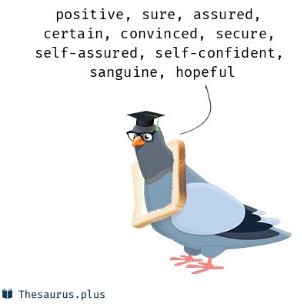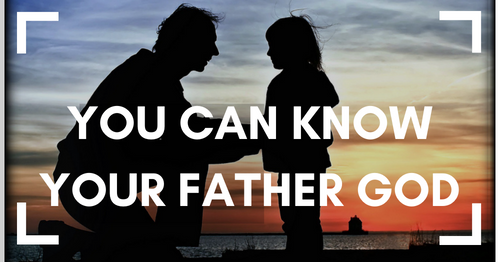When caring isn’t enough
This week President Obama praised VA Secretary Eric Shinseki, insisting that he should remain at his post because he cares so much for our veterans. Never mind the multiple allegations of incompetency that may well be costing some veterans their very lives. Whistle blowers from all over the VA system are finally coming forward with horrendous stories, but our president has yet to hold Shinseki accountable because the Vietnam vet cares so much. What cultural attitudes promote this kind of thinking and how have these attitudes seeped into contemporary Christianity? What are the lessons for us?
As we move from a print age to a digital age, multiple shifts are emerging that deserve our attention. One shift is the attitude toward expertise and competence. With the Internet as the primary communication tool, the "expert" playing field has been leveled. No one is really an expert any more. Everyone can write a blog–a place to voice one's ideas to the world. Nothing wrong with that–except who has the time to evaluate them all? I feel buried in an avalanche of ideas and frankly, I struggle to find the time to sort through all the different perspectives out there. Who will filter them for me?
Today, anyone can write and self publish a book. Publishers used to filter out quality ideas and writing from mediocre or poor ideas and writing. But with the publishing industry in flux, trying to figure out how to navigate the new digital age, it's harder and harder for new quality authors to secure book contracts. In response, self-publishing is the next best thing. Everybody can be an author. Which is great except that who has the time to evaluate them all to figure out which ones are worthy of a read and which ones aren't. Literacy is being impacted in enormous ways, although we are just learning how, and the full impact is still unknown.
What's true and what isn't? Can we even know truth? Skeptics bludgeon those "old fashioned people" who herald absolute truth as out-of-touch and one dimensional. Who's left to ascertain value? What's left to determine who should be given the reins? If there aren't any experts and none of us can know what really works and what doesn't, what's left?
We put people in charge who care. The problem is that although caring is essential, and praiseworthy–caring isn't enough. The evidence is all around us. Good-intentioned people without competence and expertise still make messes–and messes hurt people–like our veterans, as well as people who want to know more about Jesus and people in our church communities. Competence and expertise matter.
Solomon offers us rich counsel for the twenty-first century: "Listen, my child, and accept my words…I will guide you in the way of wisdom, and I will lead you in upright paths" (Proverbs 4:10,11 NET Bible). Wisdom is skill in living. It's knowing what to do in actual situations that present themselves, whether we are leading a ministry, raising a family, or overseeing the Veteran's Administration. It includes knowledge. It's much more than knowledge but without knowledge, one cannot be wise. We can care more than anyone else but if we lack knowledge that leads to wisdom, our caring is still naive and of little benefit.
In the last decade, I've seen Christians flaunt the attitude that knowledge doesn't really matter. I remember an extremely gifted nineteen-year-old woman in one of my Bible classes at church. She had a passionate heart to reach the world for Christ. I can't remember anyone with more fervor. She left for the mission field without training or expertise and soon returned defeated and downhearted. Serving the Lord well requires knowledge, training, caring, experience, expertise, and probably some mentoring. If caring is the only tool in your tool box, you probably won't thrive.
Too many voices in our culture insist that if you care, well, that's all you need–all you need is love. And we do need love. But too many in secular society are modeling this fallacy, as illustrated this week in Obama's speech about the VA. Don't believe it. Knowledge and expertise are also essential and valuable assets that God gives when we follow Him wholeheartedly and learn from Him and others. Ask yourself: Where can I gain wisdom to arm myself for a life in God's service, whether that's vocational ministry or a ministry of integrity within the culture? Both are God's work and God's work deserves our best. May none of us ever find ourselves in the place of Eric Shinseki–a man who cares deeply but lacks the competence and expertise to get the job done.



3 Comments
Debi Morton
Your Blog
Sue–Agree with you so wholeheartedly. This is a major reason why churches need to be offering in-depth Bible Studies and discipleship opportunities. I was led to the Lord in college, but it was many years before anyone discipled me, so, of course, I continued to live as though I was an unbeliever, thinking that all I needed was to pray a prayer and I would go to heaven. No one explained to me that it was about letting Christ live through me, etc. The one who led me to the Lord cared about me, but wasn't trained any further than just taking me through a booklet. It was an early lesson for me in needing to be a competent and well-trained follower of Christ.
Sue Edwards
So true
I see others who share your story more and more as we move away from knowledge and competency as high value. We never want to stay focused on knowledge as many in our generation did, but to think we can become fully formed all in followers of Christ without knowledge is naive. I'm hoping we can offer in-depth Bible studies and mentoring opportunities that go beyond head knowledge but understand that we must build on truth–which begins with head knowledge that moves to the heart and out to the hand into action. So appreciate your thoughts, Debi.
Pam Burtis
When caring isn’t enough!
Amen! So true!